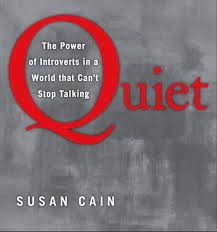“Knowing the material
- Self-Betrayal leads to self-deception and “the box”.
- When you’re in the box, you can’t focus on results
- Your influence and success will depend on being out of the box
- You get out of the box as you cease resisting other people
Living the material
- Don’t try to be perfect. Do try to be better.
- Don’t use the vocabulary – “the box,” ans so on – with people who don’t already know it. Do use the principles in your own life.
- Don’t look for others’ boxes. Do look for your own
- Don’t accuse others of being in the box. Do try to stay out of the box yourself.
- Don’t give up on yourself when you discover you’ve been in the box. Do keep trying.
- Don’t deny that you’ve been in the box when you have been. Do apologize; then just keep marching forward, trying to be more helpful to others in the future.
- Don’t focus on what others are doing wrong. Do focus on what you can do right to help.
- Don’t worry whether others are helping you. Do worry whether you are helping others.
“Okay, Bud. This will be helpful. Thanks,” I said, slipping the card into my briefcase.
“Sure,” Bud said. “And I look forward to seeing you again next week.”
I nodded, then stood up and turned to thank Lou.
“Before you go, Tom,” said Lou, “I’d like to share one last thing with you.”
“Please,” I said.
“My boy – Cory – do you remember him?”
“Yeah.”
“Well, two months after Carol and I watched him drive away, we rode in that same van to the remote wilderness that had been Cory’s home for those nine or so weeks. We were going out to meet him, to live with him for a few days, and then to bring him home. I don’t think I’ve ever been so nervous.”
“I had written him frequently in the weeks he was gone. The program leaders delivered letters to the kids every Tuesday. I had poured out my soul to him in those letters, and slowly, like a young foal taking his first uncertain steps into a stream, he began to open himself to me.
“I had discovered through those letters a boy I never knew I had. He was full of questions and insights. I marveled at the depth and feeling within his heart. But most especially, there was a peach singing through his prose that had the effect of calming the heart of a father who feared that he’d driven away a son. Every letter sent, and every letter received, was a source of healing.
“As we covered the last few miles to the rendezvous point, I was overcome with the though of what almost was – a bitterly divided father and son who had risked never knowing each other. At the brink of war – a war whose effects might have been felt for generations – we were saved by a miracle.
“Driving around the last dusty hill, I saw about a quarter of a mile away the dirtiest, scraggliest-looking group of kids that I’d ever seen – clothes worn and torn, stringy beards, hair two months’ past due for clippers. But as we neared them, out of that pack flew a lone boy, a boy whose now-lean figure I yet recognized through the dirt and grime. “Stop the car. Stop the car!” I yelled at the driver. And out I darted to meet my son.
“He reached me in an instant and leaped into my arms, tears streaming down his dusty face. Through the sobs I heard, ‘I’ll never let you down again, Dad. I’ll never let you down again.”
Lou stopped, choking back the memory of the moment.
“That he should feel that for me,” he continued, more slowly, “the one who had let him down, melted my heart.”
“And I won’t let you down again, either, Son,” I said.
Lou paused, separating himself from his memory. Then he rose from his chair and looked at me with his kindly eyes. “Tom,” he said, putting his hands on my shoulders, “the thing that divides fathers from sons, husbands from wives, neighbors from neighbors – the same thing divides coworkers from coworkers as well. Companies fail for the same reasons families do. And why should we be surprised to discover that it’s so? For those coworkers I’m resisting are themselves fathers, mothers, sons, daughters, brothers, sisters.
“A family, a company – both are organizations of people. That’s what we know and live by at Zagrum.
“Just remember,” he added, “we won’t know who we work and live with – whether it be Bud, Kate, your wife, your son, even someone like Chuck Staehli – until we leave the box and join them.”
From Leadership and Self-Deception: Getting Out of the Box by The Arbinger Institute




